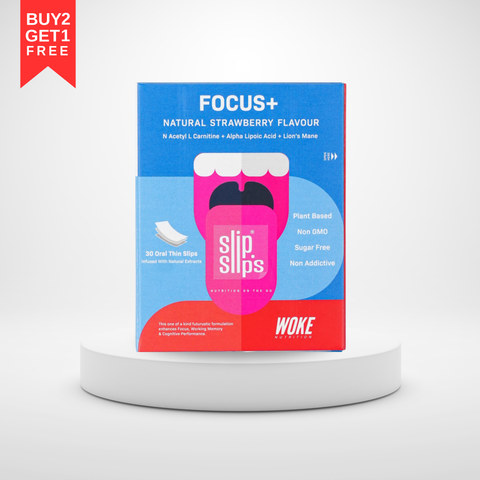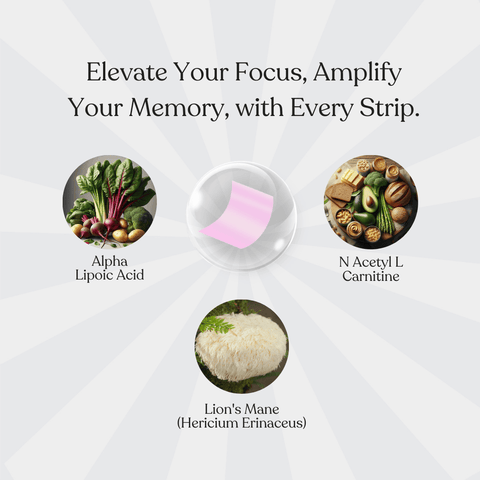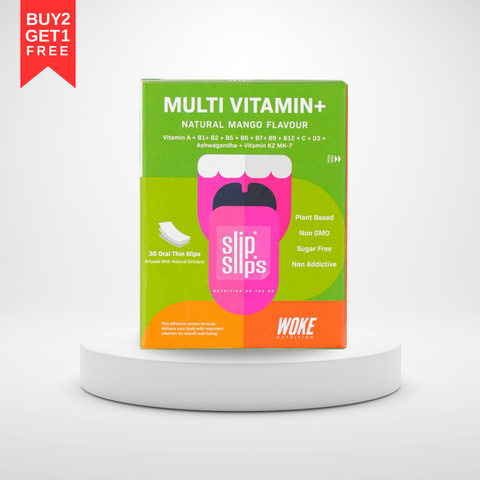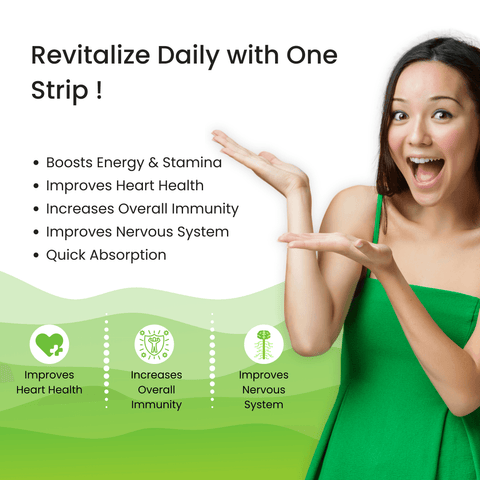Nootropics are substances that can enhance cognitive function, memory, creativity, motivation and overall brain health.
They are sometimes referred to as "smart drugs" or "cognitive enhancers." While the term nootropic was coined in 1972 by the Romanian Dr. Corneliu E. Giurgea, the use of natural substances to boost brain power has been around for centuries.
Some of the most popular and well-researched nootropics include:
- Caffeine - a central nervous system stimulant found in coffee, tea, chocolate and many supplements. Caffeine can improve mood, energy, focus and reaction time.
- L-theanine - an amino acid found in green tea that has a calming effect and can counteract some of the side effects of caffeine. L-theanine may also boost alpha brain waves associated with creativity.
- Bacopa monnieri - an Ayurvedic herb that may enhance memory, reduce anxiety and protect the brain from aging. Bacopa has been used in traditional Indian medicine for centuries.
- Rhodiola rosea - an adaptogenic herb that can help the body adapt to stress and may reduce fatigue, depression and burnout. Rhodiola has been used for centuries in Russia and Scandinavia.
- Ginkgo biloba - one of the oldest living tree species, ginkgo has been used in traditional Chinese medicine for thousands of years. It may improve blood flow to the brain and enhance memory and cognitive function.
- Omega-3 fatty acids - found in fish oil, omega-3s are essential for brain health and may reduce inflammation, improve memory and protect against cognitive decline.
While nootropics can be a helpful tool for boosting brain power, it's important to use them responsibly and in conjunction with a healthy lifestyle. Here are some additional tips for optimizing brain and body health:
Exercise Regularly
Regular physical activity is one of the best things you can do for your brain. Exercise increases blood flow and oxygen to the brain, stimulates the growth of new brain cells and connections, and reduces inflammation. Aim for at least 30 minutes of moderate exercise most days of the week.
Get Enough Sleep
Sleep is essential for brain health. During sleep, the brain consolidates memories, clears out toxins, and recharges for the next day. Most adults need 7-9 hours of sleep per night. Establish a regular sleep schedule and create a relaxing bedtime routine.
Eat a Brain-Healthy Diet
A diet rich in whole, unprocessed foods can nourish the brain and body. Focus on foods like fatty fish, nuts, seeds, berries, leafy greens, whole grains and olive oil. Limit processed foods, sugar, and unhealthy fats. Stay hydrated by drinking plenty of water throughout the day.
Manage Stress
Chronic stress can take a toll on the brain, leading to inflammation, memory problems and even shrinkage of certain brain regions. Practice stress management techniques like meditation, deep breathing, yoga, journaling or spending time in nature. Reach out for social support when needed.
Challenge Your Brain
Like any muscle, the brain needs to be challenged and stimulated to stay healthy. Learn a new skill, read challenging books, do puzzles, play strategic games, or take a class. Engaging in novel, complex activities can build new neural pathways and connections.
Example Story
Sarah, a busy professional in her 30s, had always prided herself on her sharp memory and quick thinking. However, in recent years she had noticed her brain fog worsening, especially after long work days staring at a computer screen. She found herself forgetting names, struggling to focus, and feeling mentally drained by the evening.
Sarah decided to try incorporating some nootropics into her routine to see if they could help. She started taking a supplement containing bacopa monnieri, ginkgo biloba, and omega-3s. Within a few weeks, she noticed a subtle but significant improvement in her mental clarity and energy levels. She was able to stay focused for longer periods and felt less fatigued at the end of the day.
In addition to the nootropic supplement, Sarah made some other lifestyle changes. She started taking walking breaks every hour at work, even if just for a few minutes. She also began meditating for 10 minutes each morning and made an effort to get to bed earlier. Sarah noticed that when she combined the nootropics with these other brain-boosting habits, the effects were even more pronounced.
After a few months of this new routine, Sarah felt like her old self again - sharp, focused and energized. She was able to be more productive at work and had more mental bandwidth for her hobbies and social life. While nootropics were not a magic bullet, they provided a helpful boost when combined with other healthy lifestyle habits.
Conclusion
Nootropics can be a useful tool for enhancing cognitive function, but they work best when combined with other healthy lifestyle habits. By exercising regularly, getting enough sleep, eating a brain-healthy diet, managing stress, and challenging your brain, you can optimize your brain and body health. Always consult with a healthcare provider before starting any new supplement regimen.
Citations
1. Giurgea, C. (1972). The nootropic concept and its prospective implications. Drug Development Research, 1(5), 237-247.
2. Glade, M. J., & Smith, K. (2015). Phosphatidylserine and the human brain. Nutrition, 31(6), 781-786.
3. Bhandari, P. R. (2015). Bacopa monnieri: A medicinally important plant. International Journal of Pharmaceutical Sciences Review and Research, 33(1), 18-26.
4. Panossian, A., & Wikman, G. (2010). Effects of adaptogens on the central nervous system and the molecular mechanisms associated with their stress-protective activity. Pharmaceuticals, 3(1), 188-224.
5. Birks, J., & Grimley Evans, J. (2009). Ginkgo biloba for cognitive impairment and dementia. Cochrane Database of Systematic Reviews, (1).
6. Gomez-Pinilla, F. (2008). Brain foods: the effects of nutrients on brain function. Nature Reviews Neuroscience, 9(7), 568-578.
7. Hillman, C. H., Erickson, K. I., & Kramer, A. F. (2008). Be smart, exercise your heart: exercise effects on brain and cognition. Nature Reviews Neuroscience, 9(1), 58-65.
8. Walker, M. P. (2009). The role of sleep in cognition and emotion. Annals of the New York Academy of Sciences, 1156(1), 168-197.


















Comments (0)
There are no comments for this article. Be the first one to leave a message!